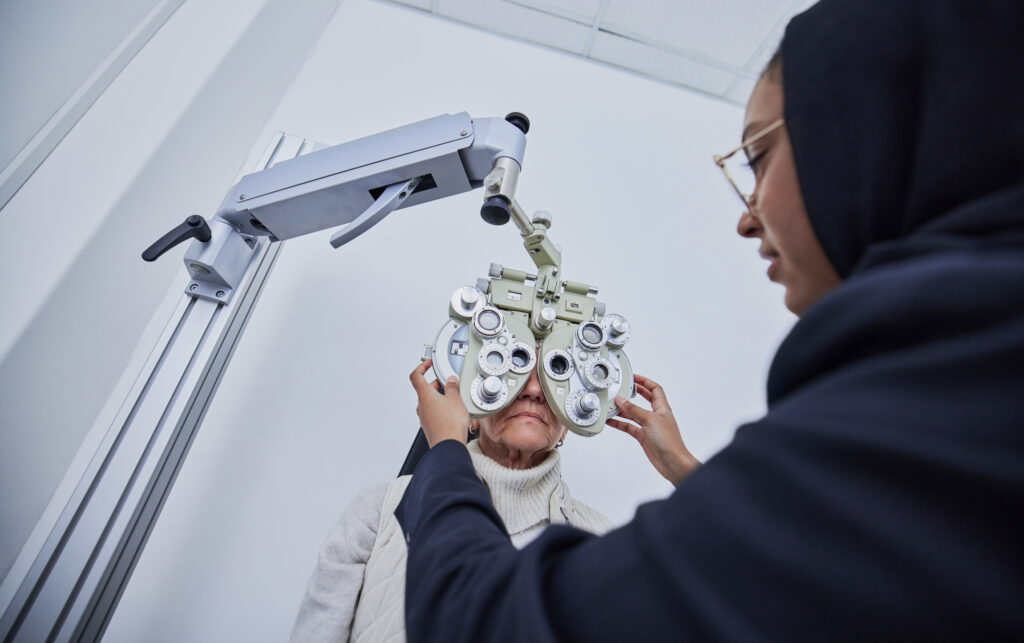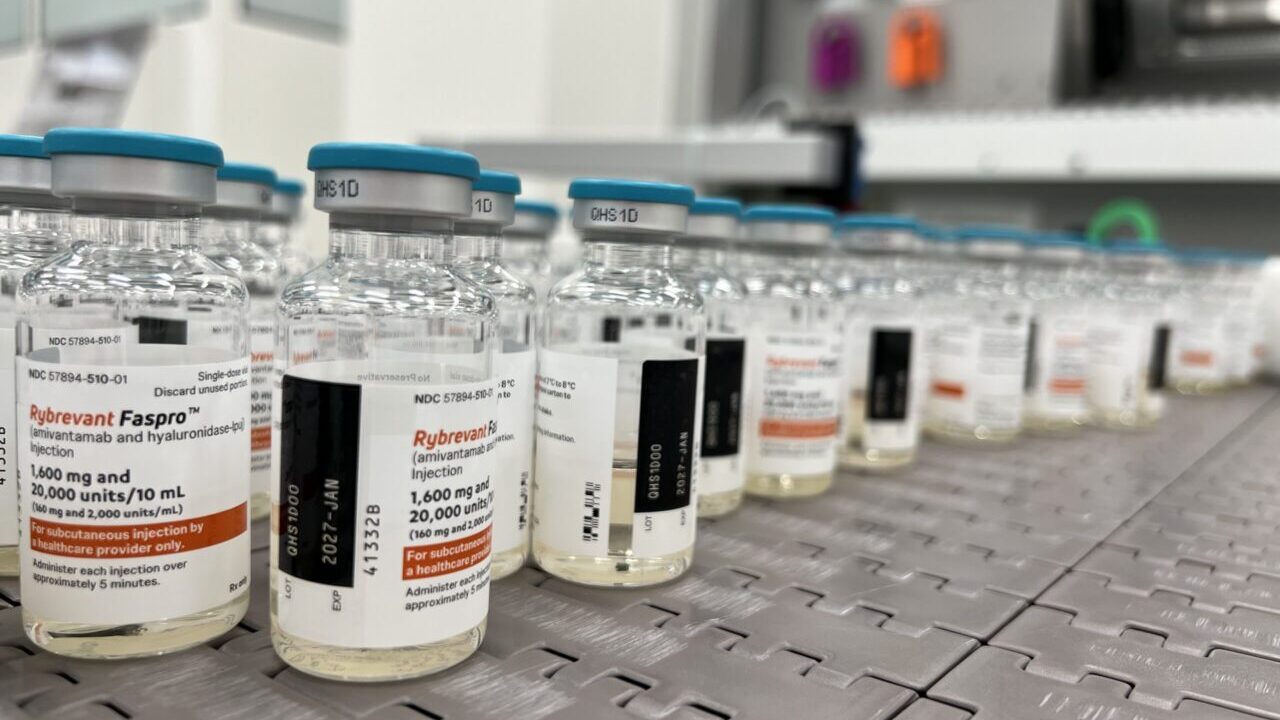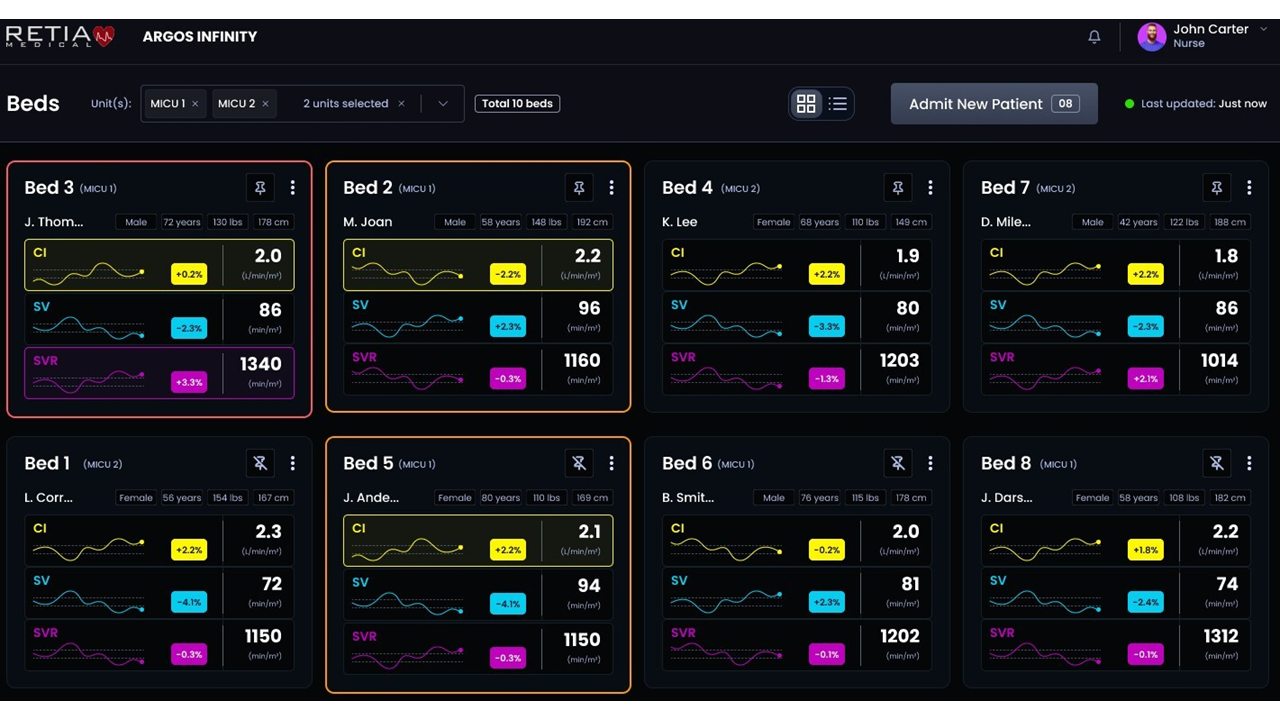LumiThera Inc., a vision tech company focused on developing photobiomodulation (PBM) therapies for ocular diseases and disorders, has received US Food and Drug Administration (FDA) authorization for its Valeda Light Delivery System for patients with dry age-related macular degeneration (AMD), one of the most common causes of vision impairment in the aging population.
LumiThera’s Valeda therapy is the first FDA-authorized treatment for vision loss in patients with dry AMD.
The system harnesses PBM therapy — a non-invasive, light-based treatment that stimulates cellular processes in the retina to promote cellular proliferation and cytoprotection.
Retinal cells are among the most energy-dependent cells in the body. LumiThera explains that at specific wavelengths, PBM can directly stimulate mitochondrial energy production in these cells.
By delivering specific wavelengths of light, Valeda targets mitochondrial function, reducing inflammation and enhancing the overall health of retinal cells.
Dry AMD is a chronic and progressive condition characterized by the gradual thinning of the macula, a region in the retina responsible for central vision.
Unlike its counterpart, wet AMD, which involves abnormal blood vessel growth, dry AMD lacks effective, FDA-approved treatment options, leaving patients at risk of significant vision loss.
AMD is a leading cause of vision loss for people aged 65 and older. Losing central vision can make it harder to see faces, drive or do close-up work like cooking or fixing things around the house.
XTALKS WEBINAR: Unlock Growth in Medical Device Manufacturing with an AI-Powered eQMS
Live and On-Demand: Monday, December 9, 2024, at 11am EST (4pm GMT/UK)
Register for this free webinar to discover how AI integration can transform compliance, streamline operations and position medical device manufacturers for unprecedented growth.
According to recent data, AMD affects over 11 million people in the US alone, and dry AMD accounts for the majority of these cases.
The prevalence of AMD is projected to increase significantly with age, rising from 4.2 percent among individuals aged 45 to 49 to 27.2 percent for those aged 80 to 85.
Worldwide, AMD cases are expected to grow by 20 percent, from 195.6 million in 2020 to 243.3 million by 2030.
The FDA authorization of Valeda was based on clinical evidence from multiple trials, including the LIGHTSITE III study, which demonstrated improved visual acuity and contrast sensitivity in patients treated with Valeda. In the trial, Valeda met its primary endpoint, showing it to be both safe and effective in enhancing and sustaining improved visual acuity.
Over a 24-month period, Valeda can lead to an improvement in best corrected visual acuity (BCVA) by more than five letters, equivalent to a full line on an eye chart.
LumiThera said it submitted the US LIGHTSITE III clinical data as part of a technical package to the FDA under a De Novo request with special controls.
Related: SPECTRALIS Flex Module Add-On Gets FDA Clearance, Aims to Improve Access to Ophthalmic Imaging
In a press release, Lori Holder, vice president, Regulatory Affairs, LumiThera, said, “The De Novo authorization established Valeda as the first device for treatment of dry AMD patients with vision loss and creates a threshold for this novel class of PBM devices that must show similar clinical and nonclinical performance controls equivalent to the Valeda Light Delivery System.”
Clinical trials conducted in Europe and the US reveal that Valeda’s PBM therapy can not only slow disease progression but also improve vision.
With the FDA authorization, LumiThera is set to roll out Valeda to clinics across the US in the coming months.
LumiThera recently launched EUROLIGHT, a new clinical registry study that will collect outcome data from 500 to 1,000 patients treated with PBM.
The company has also expressed a commitment to furthering its research into the applications of PBM therapy, which could expand treatment options for other ocular conditions, including diabetic retinopathy and glaucoma.
If you want your company to be featured on Xtalks.com, please email [email protected].












Join or login to leave a comment
JOIN LOGIN